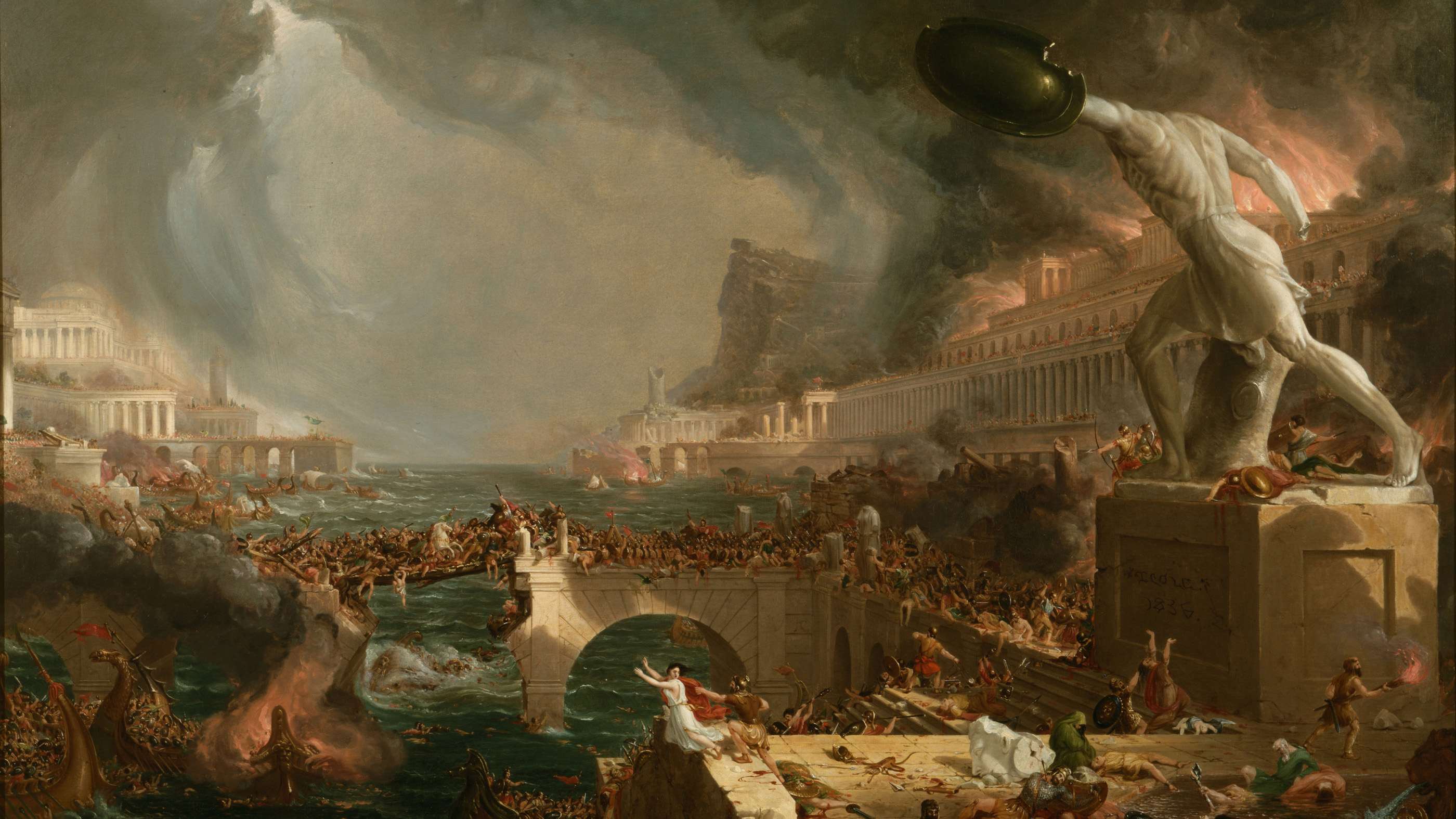Antwort Why did empires end? Weitere Antworten – What caused the end of empires
What causes empires to decline The main factors that cause empires to decline are economic issues, social and cultural issues, political issues and environmental issues. Empires decline slowly over time and are usually a combination of the reasons mentioned.Empires were really expensive, and as time went on in any empire, the expenses would go way up (armies, food and resources, education, propaganda, etc.). Eventually, there would be a financial breaking point where the usual problems that arise in such a complex system are too expensive to deal with.Historical collapses often result from multiple factors, including warfare, disease, environmental changes affecting food supply, economic sustainability issues and internal decay, as evidenced by the falls of the Roman Empire, Mayan civilization and the Anasazi people.
Why are there no more empires : Some of the broad factors that historians use to help explain imperial collapse are: Economic issues. Social and cultural issues. Environmental issues.
Do any empires still exist
Compared with their ancient and early modern predecessors, the empires of the last century were remarkably short lived. This phenomenon of reduced imperial life expectancy has profound implications for our own time. Officially, there are no empires now, only 190-plus nation-states.
What was the most powerful empire in history : In 1913, 412 million people lived under the control of the British Empire, 23 percent of the world's population at that time. It remains the largest empire in human history and at the peak of its power in 1920, it covered an astonishing 13.71 million square miles – that's close to a quarter of the world's land area.
the British Empire
In 1913, 412 million people lived under the control of the British Empire, 23 percent of the world's population at that time. It remains the largest empire in human history and at the peak of its power in 1920, it covered an astonishing 13.71 million square miles – that's close to a quarter of the world's land area.
the British Empire
In 1913, 412 million people lived under the control of the British Empire, 23 percent of the world's population at that time. It remains the largest empire in human history and at the peak of its power in 1920, it covered an astonishing 13.71 million square miles – that's close to a quarter of the world's land area.
What is the oldest empire
the Akkadian Empire
The earliest known empire was the Akkadian Empire. For around 1,000 years, Mesopotamia was dominated by city-states—small political units, where a city controlled its surrounding area. In 2330 BCE, Sargon of Akkad took control of southern Mesopotamia. He ruled from the city of Akkad, the center of his small empire.At the beginning of the 20th century, there were 16 empires of varying size and reach. At the end of the century, there was just one: the United States. How did this happen and what role did Britain play in smoothing America's path to global hegemonythe Mongol
One estimate is that about 10 percent of the world's population was killed either during or immediately after the Mongol invasions, around 37.75–60 million people in Eurasia. These events are regarded as some of the deadliest acts of mass killing in human history. Mongol conquests were described as genocidal.
the British Empire
It is considered that the British Empire is the largest in the world, taking into consideration its land area and population. The empire was spread across 13.01 million sq. miles, which is more than 22% of the earth's total landmass.
What is the smallest empire : Nope, not even the Zulu Empire or the Empire of Trebizond was as small as the First and Second Haitian Empires. Elba has an area of 224 square kilometers or 96 square miles. Thus Napoleon's rule of Elba in 1814-1815 could be called the smallest empire in history.
Has any empire lasted 1,000 years : The Roman Empire is the longest-lasting empire in all of recorded history. It dates back to 27 BC and endured for over 1000 years.
Did any empire last 1,000 years
Byzantine Empire, the eastern half of the Roman Empire, which survived for a thousand years after the western half had crumbled into various feudal kingdoms and which finally fell to Ottoman Turkish onslaughts in 1453.
The Mongol Empire: Under the leadership of Genghis Khan and his descendants, the Mongol Empire engaged in widespread and brutal warfare, which led to the deaths of millions of people. They also destroyed cities, looted treasures, and engaged in acts of cruelty and brutality.The cruelest empire in history is a highly debated topic, as many empires throughout time have committed horrific acts of violence and oppression. However, one of the most notorious empires known for its brutality is the Mongol Empire, led by Genghis Khan.
What was the weakest empire ever : For example, the short-lived empire of the Khmer Rouge in Cambodia in the late 1970s is often considered one of the weakest in history. This empire was marked by extreme brutality, widespread famine, and mass executions, and it only lasted for a few years before being overthrown.








